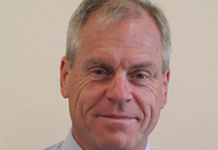Life Lessons and Trauma Informed Care
My first real introduction to the world of madness and “mental illness” was when I was 21 years old and I left home to start my mental health nurse training. Reflecting on my own experiences has led me to consider how the trauma of participating in the psychiatric system can affect the way we care for others.
Life in the Era of Push-button Psychiatry
Most of us know ourselves so much better than our doctors do. We’re smart and we know what’s wrong. We don’t need some dude in an office to tell us. If you are totally convinced that the chemical route will cure you, why not go out and buy drugs directly? Why bother with the appointment, doctor, diagnosis, prescription, insurance, approval, and pharmacy method when it’s so costly, time-consuming, and you so often end up on the wrong drugs, or even incarcerated in a hospital? Do we really need psychiatrists when a vending machine will do?
Mourning? – Yes; Forgiveness? – No. Healing from Trauma
Mourning is the biological process that allows us to relinquish and deactivate the brain mappings that result from trauma. By facing the pain, we can truly put it behind us, where it no longer rules us. In so doing, one writes a new play that is infused with authenticity and love.
Inner Fire: Healing and Recovery Without Meds
For five years, I and others worked to create a residential healing community in Brookline, Vermont, where people could recover from debilitating and traumatic life experiences, which often lead to addiction and mental health challenges, without the use of psychotropic medications. We welcomed our first six seekers to a yearlong, therapeutic and farm-based, day program last September, and we now can report on what we have learned during this time.
Escaping the Grip of Forensic Psychiatry
Six years ago a new neighbor moved into the house across the street. Paul Ellis was his name and we gradually moved from a nodding acquaintance to long conversations about philosophy and then to walking our dogs together. Then one autumn evening Paul told me that he had spent seven years in a forensic psychiatric hospital for killing his father in a substance-induced psychosis.
I am Insane
I have been here at Western State Hospital for almost five years. While I’ve been told that I’ve met all the criteria for a conditional release, the hospital won’t grant me this because I can’t prove that I won’t be dangerous in the future. Can anyone prove this? Even convicts don’t have to prove they’re ‘safe’ before they are freed.
Sadness: The Problem and The Solution
There is an ever-narrowing bandwidth of behavior that supports the dominant narrative in our culture today. We all need to act a certain way to protect the foundational beliefs of our time – that “science” has it all figured out, that rules keep us safe, and that it’s us vs. them (insert germs, terrorists, pests, and other “enemies”). But what are the consequences of this? What is this sadness and where does it go if we bandage our consciousness with business, medication, substances, or general avoidance of our real human experience?
Off Psychiatric Drugs After Fourteen Years
I have hopes for the field of psychiatry. I hope the field will redeem itself, and redeem its practitioners, because they do have clinical skill and the opportunity to learn more and grow. Many of them, I believe, were just taught bad science, influenced and infiltrated by Big Pharma.
#Diversity? — What “Solidarity” Really Looks Like
What would it look like if national peer-run mental health organizations and other national leaders came out with statements in support of other movements' struggle for freedom from oppression? What would it look like if we were truly unified in solidarity? We would have community-based centers providing intentional support, open 24 hours a day, instead of crowded jail cells holding people in pain. It wouldn't be easy, but we have to do it.
More on the Power of Diversity: The “Hidden Recovered”
If we look at stigma as arising from the fear of things perceived as unfamiliar and judged abnormal, then we must think of challenging stigma by making the characteristics associated with stigma more familiar and thus less fearful. For me, central to stigma is discrimination and exclusion. The antidote: working with someone as a colleague, knowing such a person as a neighbor and friend.
Centering Lived Experience
Lately, after a number of discussions, we have been changing our practices around the issue of labels. No longer do we give a diagnosis at presentations. We place the young person’s story, as told to us, front and center. People listening rarely ask, “What is their diagnosis?” now that lived experiences are central. We are providing a sense of their struggles. We are trying.
Why Mental Health Organizations Should Endorse the Movement for Black Lives
The psychiatric survivor movement, which then became the consumer movement and recovery movement and now the peer movement, was born in a time of civil rights and Black organizing in the US. It was Black people in the civil rights movement who inspired all of us to make social change real, and psychiatric patients and progressive professionals took up that inspiration. In a very real way, Black protest made psychiatric protest possible, which then led to the modern consumer/peer/recovery movement.
Interview: Researcher Runs Trial on Antidepressant Withdrawal
Tony Kendrick, a professor of Primary Care at the University of Southampton, has found through his research and practice that too many people are being prescribed antidepressants long-term without the information and support necessary to get off of them.
Dear Boston Globe, Part III: We Came. We Protested. You Still Didn’t Listen.
On Monday, August 1, over 140 people arrived on the Globe's door step asking for change. They came as a part of a Vigil entitled, ‘The People’s Spotlight.’ The event was in direct response to your ‘Spotlight on Mental Health’ series (still, painfully) called ‘The Desperate and the Dead’ (in case you didn’t catch the play on titles yourself). The demands were relatively simple.
It’s Time for a Revolution Within the Revolution: Coming Out of the Closet on...
If we are to demand justice for our brothers and sisters in hospitals, jails and community-based programs, then we must demand justice for women, Blacks and other POC who are being discriminated against. We cannot continue to be silent while 50% of us are regulated to the back, and not allowed space at the table. Our fellow community members are wounded by the silence. We expect and are now demanding to be treated better.
What Do the DSM, Elvis Presley, and Dionysus Have in Common?
To a classicist, the psychotic illnesses detailed in the pages of the DSM look like nothing but the main characters of the classical tragedies of ancient Greece, only born anew under medicalized names. And since the ancient tragedians do their utmost to make us sympathize with these characters, reading a tragedy or two—such as Euripides’ Bacchae—might go a long way toward helping us understand—truly understand, on existential grounds—when and why an individual elects to engage in odd behaviors.
The Struggle, and the Challenge: Young Adults in Crisis and the Use of Medication
I face the daily challenge at my urban center in Hartford, Connecticut of working with young adults (18-25) coming out of the juvenile system into adult outpatient care. Most of these youngsters come to us on multiple medications of all classes. Almost all have stories of trauma, abuse and neglect going back some generations. Almost all carry psychiatric labels of bipolar or schizoaffective or personality or behavioral disorders. Very few of them have ever been told of the long-term effects of the medications they have been prescribed.
Six Lessons on Open Dialogue From the Collaborative Pathway Experiment
The Collaborative Pathway is a replication and adaptation of Open Dialogue at Advocates, Inc., a human services agency in Framingham, Massachusetts where I serve as Medical Director. Last week, our team published an article in the Best Practices column of the journal Psychiatric Services, describing the program and our results from the first cohort of young people and families experiencing a psychotic crisis. This is the first published adaptation of Open Dialogue in the U.S. and represents the culmination of several years of planning, training, and direct service.
I Will Not Abandon You
My tipping point came last week after learning about the killing of 3 police officers in New Orleans, which had followed very shortly after the murder of five police officers in Dallas. I felt a deep and ancient fear and anxiety rumbling within. I wondered if others felt this tremblement de terre - this inner earthquake. My heart aches from the pain inflicted on others, as well as experienced by the individuals who acted out their fear in a murderous rampage.
You Can Have Any Kind of Treatment You Want, Providing it’s Our Kind
Mental health nurse education supports institutional psychiatric practice in an insufficiently questioning way. Its formal curricula in universities are often undermined by the informal curricula of practice environments. As an institution, mental health nursing pays insufficient attention to both these issues because it is an arguably un-reflexive and rule-following discipline.
Drug Choice, Scientology, Ego Needs & Other Divides: Real Politics 101, Part Three
Abolishing First-Order Psychiatry—which includes the American Psychiatric Association and its Big Pharma partners—as a legitimate authority in determining “mental illness” as well as abolishing First-Order Psychiatry’s “treatment” and control dominion are primarily political struggles. In Part One, I discussed the Rehumanizing Resistance’s political naivety; and in Part Two, I offered strategies and tactics. In Part Three, I will focus on how the Resistance can overcome frustration and disunity and gain greater strength.
They Call This “Help”
“Won’t they know I’m lying?” I asked. “Won’t they know I’m an impostor?” “No,” he said, “not at all. You can tell them you’re suffering from delusions and they’ll believe it almost without question. It doesn’t matter if you don’t have any history of psychiatric illness or hospitalization, just make up some nonsense about hearing voices and they’ll swallow the whole thing hook, line and sinker.”
Hearing Voices, Living Fully: Living with the Voices in My Head
My memoir, Hearing Voices, Living Fully: Living with the Voices in My Head, chronicles my journey through depression, psychosis, and an unmedicated recovery, and describes how I learned to challenge my demons and negotiate the conditions that allowed me to regain control over my mind and my life. Although I thought my story was very unusual, I thought it possible that many who have manifested the symptoms associated with schizophrenia could achieve a greater degree of recovery than is currently the norm. When I became involved with the Hearing Voices Network, I learned that my experience is not uncommon and that there are literally millions of people in the world who are living full lives, even while hearing voices.
The Case Against Antipsychotics
This review of the scientific literature, stretching across six decades, makes the case that antipsychotics, over the long-term, do more harm than good. The drugs lower recovery rates and worsen functional outcomes over longer periods of time.
Mental Health Advocacy in California: Perspectives of Advocates and Decision-Makers
In partnership with the California Association of Mental Health Peer-Run Organizations (CAMHPRO), Live & Learn, Inc. conducted a survey on the impact of stakeholder advocacy on decisions affecting public mental health systems in California. The objective was to pilot an approach to help CAMHPRO evaluate the impact of consumer advocacy in the state and to document the activities that advocates engage in (e.g., legislative testimony, demonstrations, campaigns).














